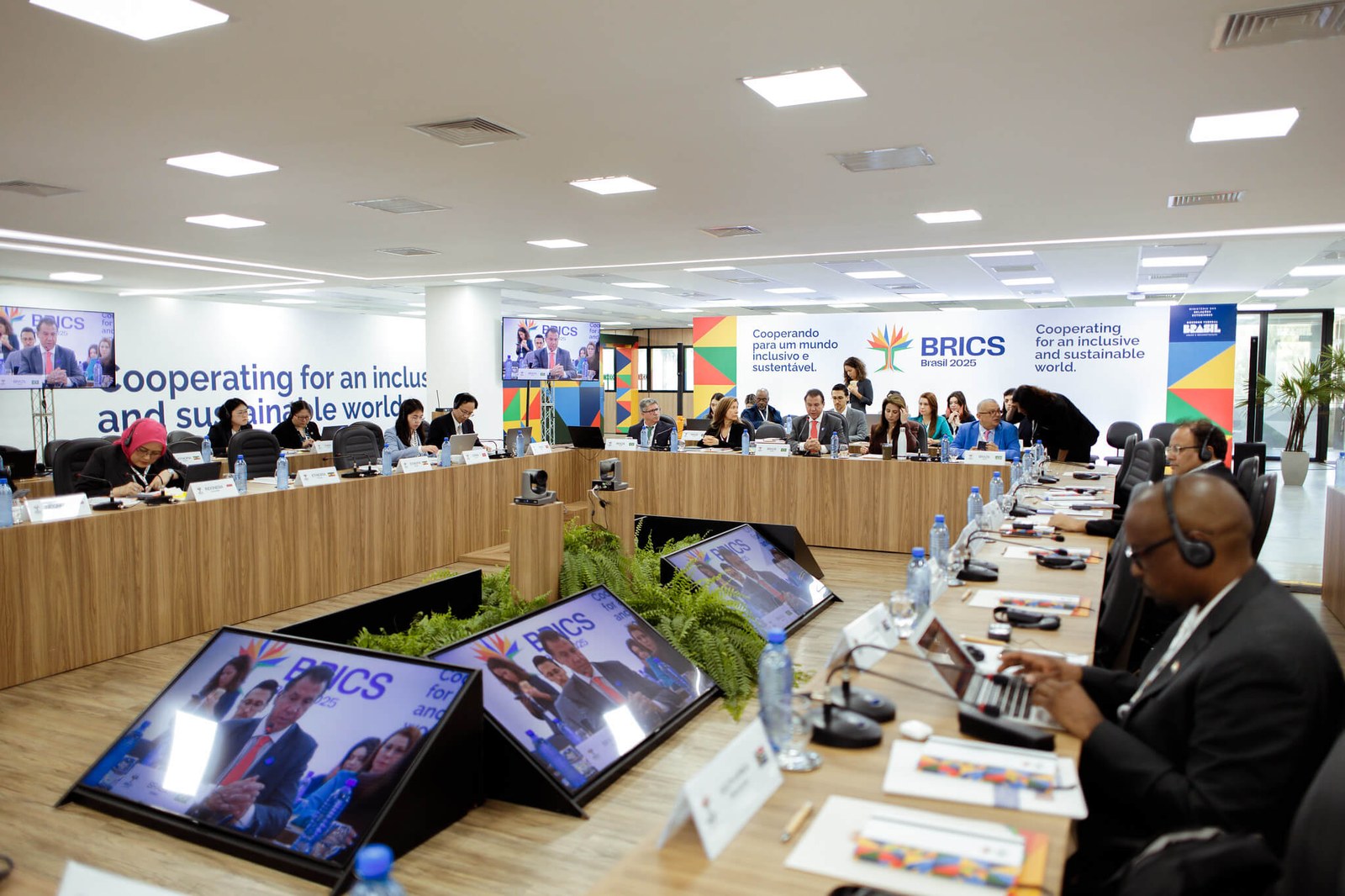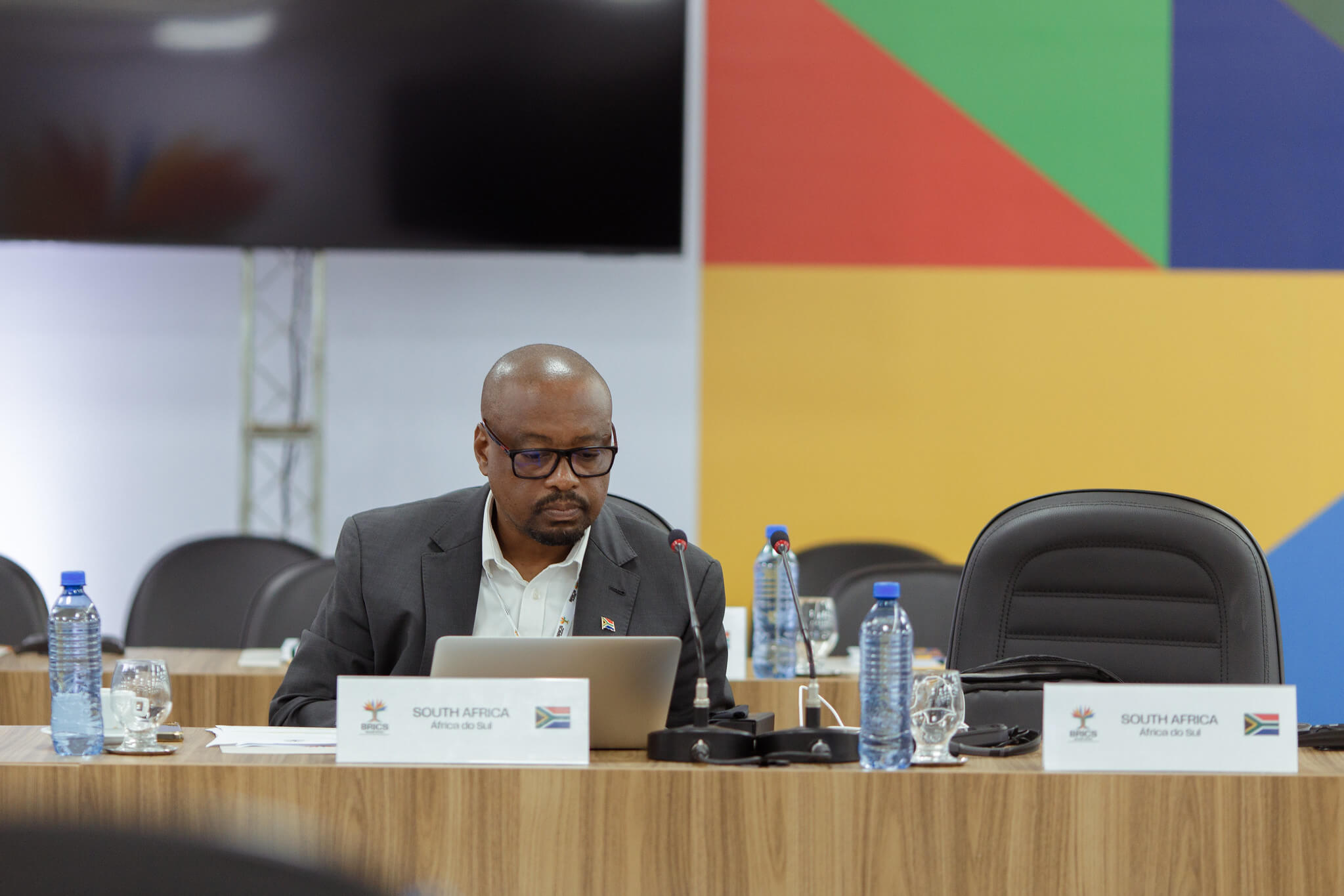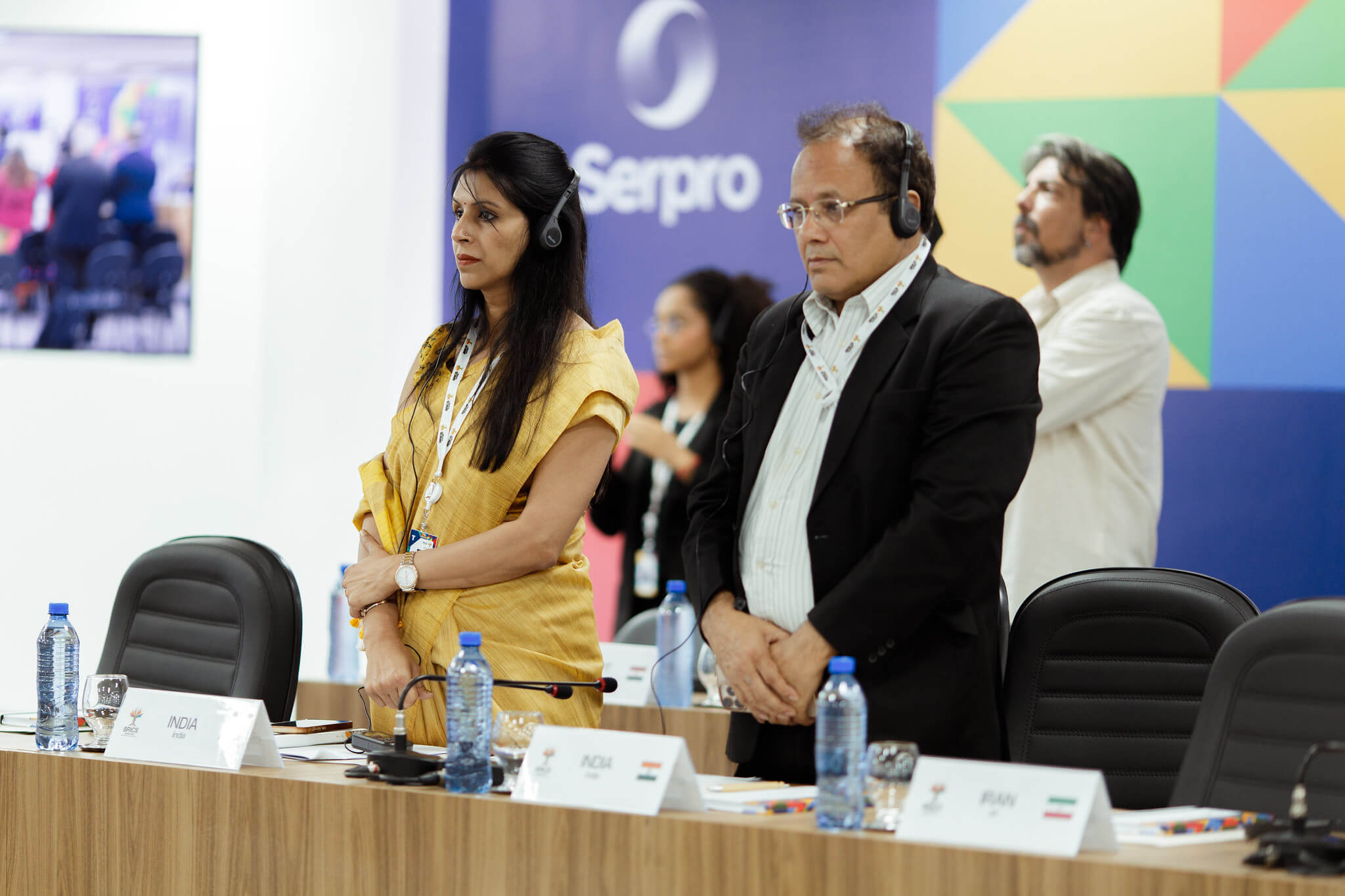BRICS discusses impacts of climate change and just transition on the world of labor
Representatives of the group met in Brasilia to discuss climate challenges, advocating for a just transition, protection of the most vulnerable, and integrated public policies.

By Maiva D´Auria | maiva.dauria@brics.br
The impacts of climate change on employment and the transition to a more sustainable economy have become increasingly relevant in BRICS discussions, reflecting growing awareness of these issues. On Tuesday and Wednesday, April 22–23, representatives from the countries that make up the group met in Brasília to define actions aimed at promoting decent work and developing the job market.
At the event opening, Brasil's Minister of Work and Employment, Luiz Marinho, stressed the importance of a just transition towards a sustainable economy, highlighting the country's role in promoting inclusive policies. "The transition cannot be seen merely as an economic strategy but as a social need. This change must be inclusive, generating quality jobs and offering protection to the most vulnerable. This is essential both for the present and for the future of work.”
“If the countries unite to act with structure, definition, and joint actions, we will be able to protect all workers. We will be able to bring in the partners — the workers and the companies — to discuss with us and protect everyone. We can no longer discuss this in isolation.” She concluded by highlighting the fact that addressing the climate crisis required coordinated efforts among the countries."

Echoing Marinho's remarks, Kgomotso Letoaba, Deputy Director of International Relations at South Africa's Department of Labour and Employment, emphasized not only the significance of the issues discussed during the technical meetings —such as artificial intelligence, just transition, and employment challenges faced by youth and vulnerable groups— but also the importance of multilateralism, both among countries and within each nation, across different levels of government.
“All these discussions are extremely relevant. In South Africa, for example, we are working with various government departments because this is not simply a labor issue, but also a social one,” he stated.
The South African representative emphasized that impacts on the labor market directly affect communities, requiring a broader approach: “When we talk about the impacts on jobs, we are also talking about the impacts on communities — and this entails many other important aspects.”
According to Letoaba, the BRICS meetings represent an opportunity for the exchange of experiences: “This is one of the reasons we are here — to support the Brazilian presidency, take part in the discussions on this topic, and also to learn. It is very important to observe what Brazil and other countries are doing so that we might create similar legislation and implement it in our own country.”
In the debate arena
Discussions have been based on the commitments set out in the Paris Agreement and underscore the need for public policies that ensure social protection, workforce reskilling, and job security for the most vulnerable workers, such as those with lower education levels and women. The concept of a “just transition” is being redefined to ensure that no worker is left behind in this transformation process.
Among the main themes discussed over the two days were:
• Mitigation of climate impacts: addressing the specific effects of climate change and climate policies on employment;
• Promotion of a just transition: developing policies and strategies for an inclusive transition that creates job opportunities;
• Engagement of key partners and promotion of social dialogue to generate decent jobs;
• Integration of health and occupational safety concerns into public policies to address the impacts of climate change.
Maíra Lacerda, head of the Special Advisory on International Issues at the Brazilian Ministry of Labor and Employment, who coordinated the technical group, emphasized that the effects of climate change are being felt across the world, regardless the level of development.
““What has climate change shown us? That, in fact, no country is an island. It brings impacts and challenges — including emergencies — to both emerging and developed countries. Everyone is experiencing this in a way that makes its existence undeniable. And we cannot afford to work in isolation.”
In this sense, Lacerda stressed the importance of multilateral forums as spaces for joint coordination.
“If the countries unite to act with structure, definition, and joint actions, we will be able to protect all workers. We will be able to bring in the partners — the workers and the companies — to discuss with us and protect everyone. We can no longer discuss this in isolation.” She concluded by highlighting the fact that addressing the climate crisis required coordinated efforts among the countries.

According to Anjali Rawat, deputy director-general of India’s Ministry of Labour and Employment, this collaboration is extremely important because it allows countries to understand the way others are thinking and how they are developing their policies and guiding their actions.
“When we participate in a delegation or a forum such as this one, we bring ideas based on our own reality. Our countries face similar challenges, and having this first-hand experience exchange is extremely valuable. By observing the good practices followed by other countries, we can incorporate elements to our own systems — and the opposite is also true. We can share what we have been doing with them and they can adopt our practices.”
Anjali Rawat stressed that each nation has its specificities and that it precisely why the dialogue becomes so enriching.
“We come from the same basis of comparison, with common goals. This involves all sectors: labor, education, professional training. Naturally, each country has its challenges and ways of thinking, but when we put it all together, these contributions become extremely valuable.”
Artificial Intelligence
In February of this year, the BRICS technical group met to discuss the impacts of artificial intelligence (AI) on the future of work. The advancement of this technology has been transforming the labor market, leading to the emergence of new occupations and forms of work, such as those carried out through digital platforms.
Among the discussion topics was the need to ensure labor rights and social protection for these workers, as well as to foster a culture of continuous learning that can prepare the workforce for the challenges of the digital economy. On that occasion, the International Labour Organization (ILO) warned that, if poorly implemented, AI could worsen inequalities and lead to job losses, particularly in cognitive roles.
Joint Declaration
Following the conclusion of the second day of discussions among the members of the Technical Group, the next step will be the Ministerial Meeting at the Itamaraty Palace in Brasilia, scheduled for next Friday, April 25. At that time, the Joint Declaration will be signed, outlining the commitments made by the countries to address the transformations in the world of work brought about by climate change and the technological revolution.